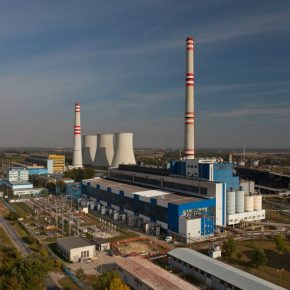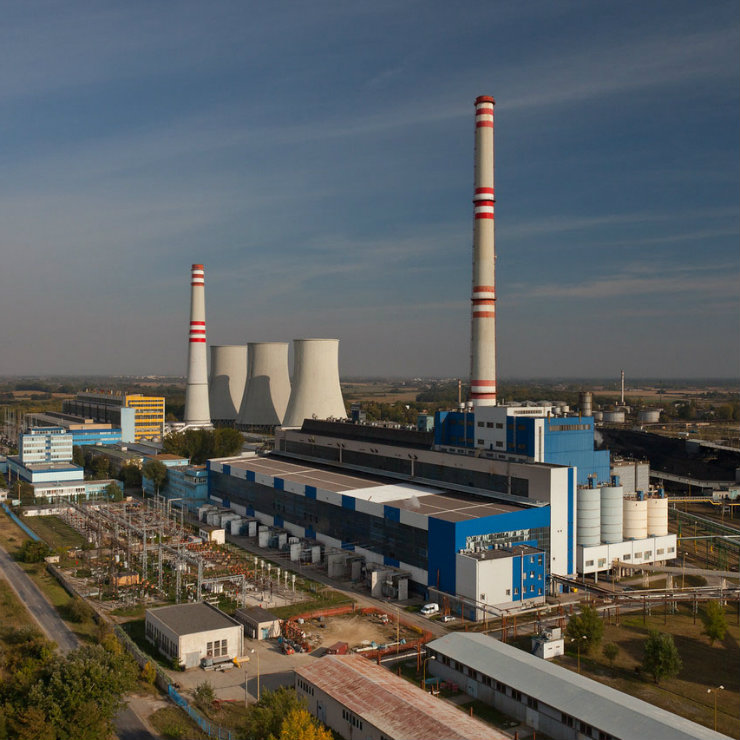
Thermal power station, Vojany, Slovakia (Slovenské elektrárne, Public domain)
This is why the government has started plans to set up an energy industry holding company that would house all shares the state owns in key energy companies – and also possibly buy new ones. This adds Slovakia to the list of Central European countries seeking to increase state control over the energy sector, after Hungary bought back several previously privatized utility companies and Poland is seeking to „re-Polonise” the energy sector.
„We want to put all state-owned shares in energy companies under one roof and create a Slovak version of the Czech Republic’s CEZ, Austria’s OMV and Hungary’s MOL – a stronger and more respectable player that would have an active role in the Slovak energy sector,” Žiga told Reuters.
„The holding company should be able to buy free assets in the energy market and raise money by issuing its own bonds without increasing the state debt,” the minister said.
The Slovak state will also seek an automatic right of first refusal for the state to buy into companies deemed to be of national importance when private owners want to sell their interests. A new law will define a company as „strategic” based on their industry, region in which they are based, or the number of employees.
„Some assets have a strategic importance for the state and can’t be measured purely by their profitability,” Žiga said. „Private companies, such as big car makers, can also be deemed as strategic which would give the state the right of first refusal in case they considered leaving the country and selling their local subsidiaries to non-standard investors,” he added.
The state already owns a 34 per cent of shares of the biggest electricity utility Slovenské elektrárne, a 51 per cent share in gas transit company Eustream, 100 per cent of the biggest gas supplier SPP and 51 per cent in three regional electricity and gas distribution companies.
The previous government – also led by Fico – secured an option in 2015 that could boost the government’s 34 per cent stake in Slovenské elektrárne to 51 per cent. Italian utility Enel’s agreed gradually to sell its 66 per cent stake in Slovenské to Czech group EPH.
Government promises increase of minimum wage
Žiga also introduced a package of measures to reduce red tape for businessmen and simplify business itself in Slovakia. He set out plans to increase the minimum wage and supplementary payments for night, weekend and holiday work. He also wants to ban what has been dubbed “social dumping”, i.e. hiring foreign workers at low wages.
The Minister of Labour, Social Affairs and Family, Ján Richter, has already been instructed to prepare an amendment to the Labor Code to put the proposed changes into effect. “I think that these measures will be passed without any problems,” Slovak PM Robert Fico said, as quoted by the SITA newswire.
Fico proposed speeding up an already-planned increase in the monthly minimum wage. This currently stands at EUR435; the plan is to increase it to almost EUR500 next year and then to above EUR500 in 2019. The original plan was to have the minimum wage rise above EUR500 only in 2020.
Another measure to be introduced is the so-called pre-retirement, which would apply to people who become jobless or wish to retire shortly before they reach the normal retirement age. Concrete legislative proposals should be submitted for the September parliamentary session for adoption, while most of the measures might become effective from the beginning of 2018.
The business sector responded rather critically to the Fico’s May Day package. “We require an agreement upon a mechanism that will be predictable and will not mean an annual quarrel,” said Rastislav Machunka, vice-president of the Federation of Employers’ Unions (AZZZ), as quoted by the Hospodárske Noviny economic daily. On the other hand, trade unions support the wage increases.


